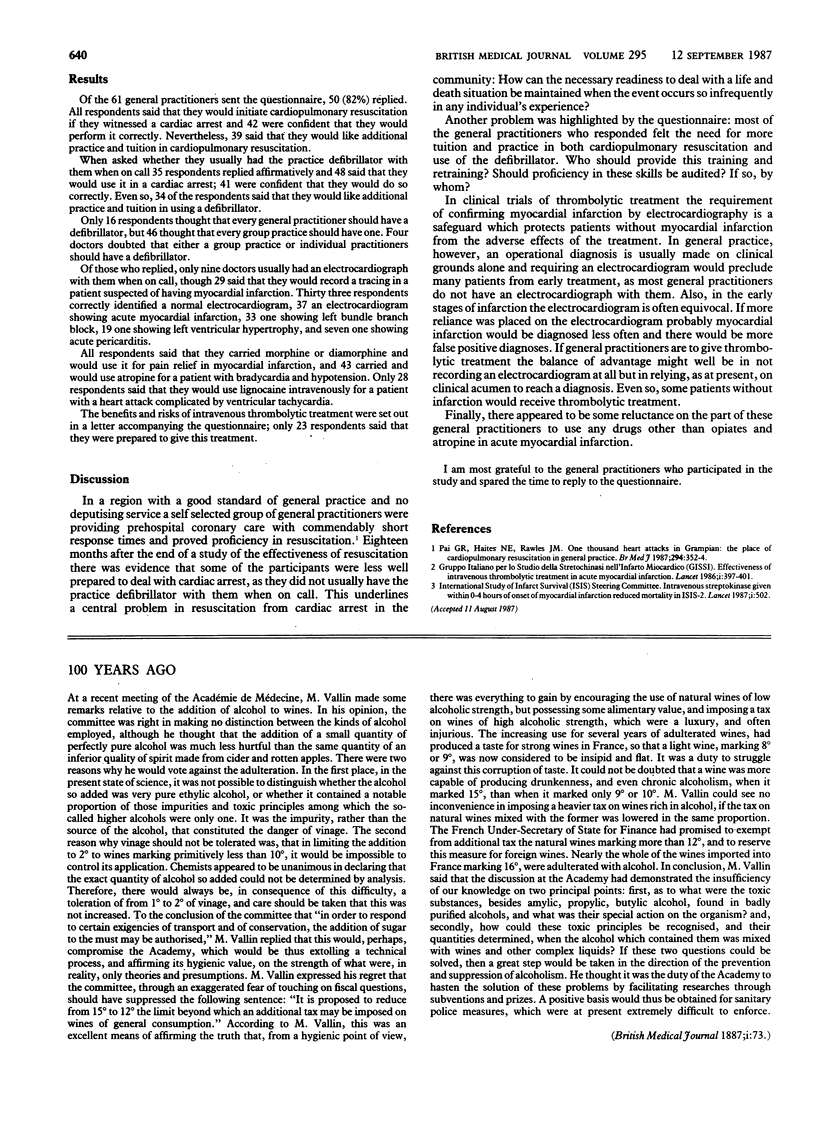Abstract
A questionnaire was sent to 61 general practitioners who had participated 18 months previously in a study of their experience of cardiopulmonary resuscitation and defibrillation in acute myocardial infarction. Fifty (82%) replies were received. Only 16 of the 50 respondents thought that every general practitioner should have a defibrillator, but 46 thought that every group practice should have one. Most practitioners felt the need for more tuition and practice in advanced life support, but 15 did not have the practice defibrillator with them when on call. Only nine doctors normally had an electrocardiograph with them when on call, most relying on clinical acumen to make an operational diagnosis; there appeared to be reluctance to use any drugs other than opiates and atropine in the management of acute myocardial infarction. This study highlights the difficulty of maintaining readiness to deal effectively with myocardial infarction in the community and the problems of relying on the electrocardiogram in deciding who should be given thrombolytic treatment.
Full text
PDF



